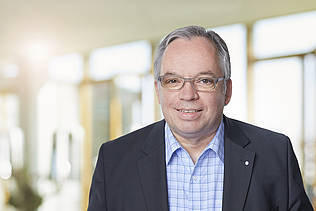
Dr. Bernhard Weber
Associate Director Quality Management
The dynamics of the SARS-CoV2 infection rates and a correspondingly explosive rise in demand for protective masks led to political and, with them, regulatory decisions being made at the beginning of the year. The Commission Recommendation (EU) 2020/403 enabled EU member states to obtain medical devices and personal protective equipment even without complete conformity assessment procedures due to the emergency situation. In Germany, this was obtained through special authorisations for medical devices by the Federal Institute for Drugs and Medical Devices (Bundesinstitut für Arzneimittel und Medizinprodukte – BfArM).
On the other hand, the mask boom also led to distortions on the market. Goods of inferior quality were delivered at rapidly rising prices as a gold rush mentality took hold. Some certification bodies also did not hesitate to issue “CE certifications on a voluntary basis” for products that merely suggested conformity with EU requirements at first glance.
These developments ultimately led to the political decision to re-establish the production of masks in Germany. Extensive funding has encouraged both existing medical device companies and newcomers to start mask production. The funding framework has been exhausted, which has meant that applications are no longer possible as of the end of June, and mask manufacturers must be able to deliver beginning in September.
This also means that a conformity assessment procedure must be carried out in accordance with the Medical Device Directive (MDD).
It is no longer possible for BfArM to issue special authorisations. The BfArM assesses the situation in such a way that “in the current SARS-CoV-2 pandemic situation, there is no longer any supply bottleneck that would justify or even necessitate a special authorisation in the interest of public health or patient safety or health”. Existing special authorisations are generally limited until 31 August 2020 and will not be renewed. Evidently, they are relying on in-house production from September 2020. This is a surprisingly optimistic assessment of the situation in view of the second wave that many scientists expect to hit in autumn and the already rising infection rates within Europe.
Current developments in the coronavirus pandemic do not suggest that it will end in the near future. As long as there are no effective vaccinations on a sufficient scale and/or drug therapies to treat the severe course of the disease, the need for medical protective masks will remain high. And regardless of the political intentions to produce masks domestically, it is likely that we will continue to need masks from the Asian region in order to meet demand.
It should also be noted that, from May 2021 onwards, compliance with the requirements of the MDR will be mandatory. Medical face masks are usually class I medical devices and will remain so under MDR. There is no longer a transitional period for these medical devices. From 26 May 2021 they must meet the requirements of the MDR.
Since the beginning of the SARS-CoV2 pandemic, Diapharm has supported manufacturers and distributors of medical protective masks in a variety of ways, including:
What can we do for you? Contact us!